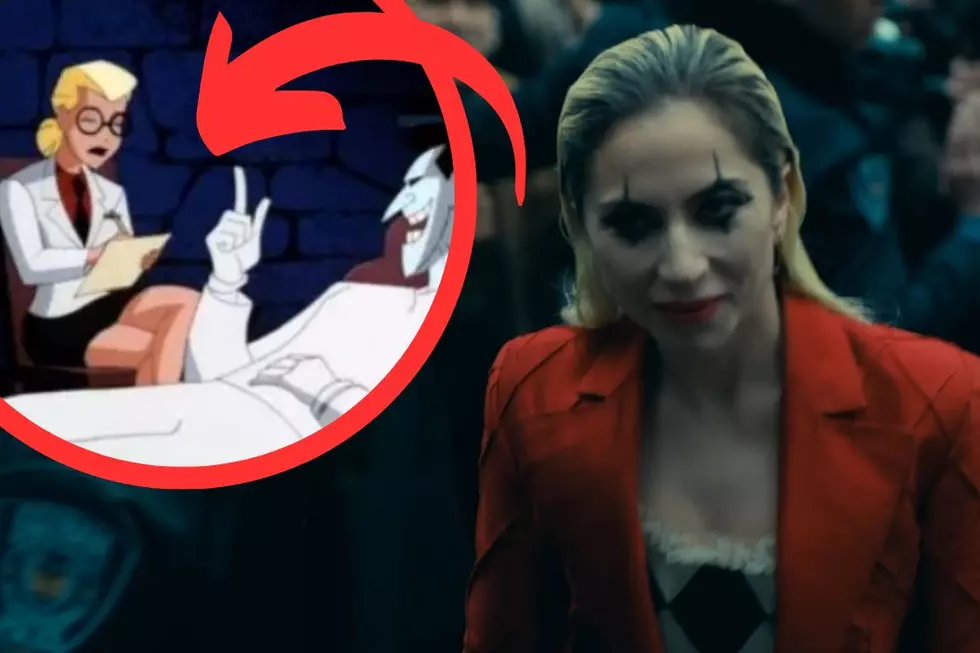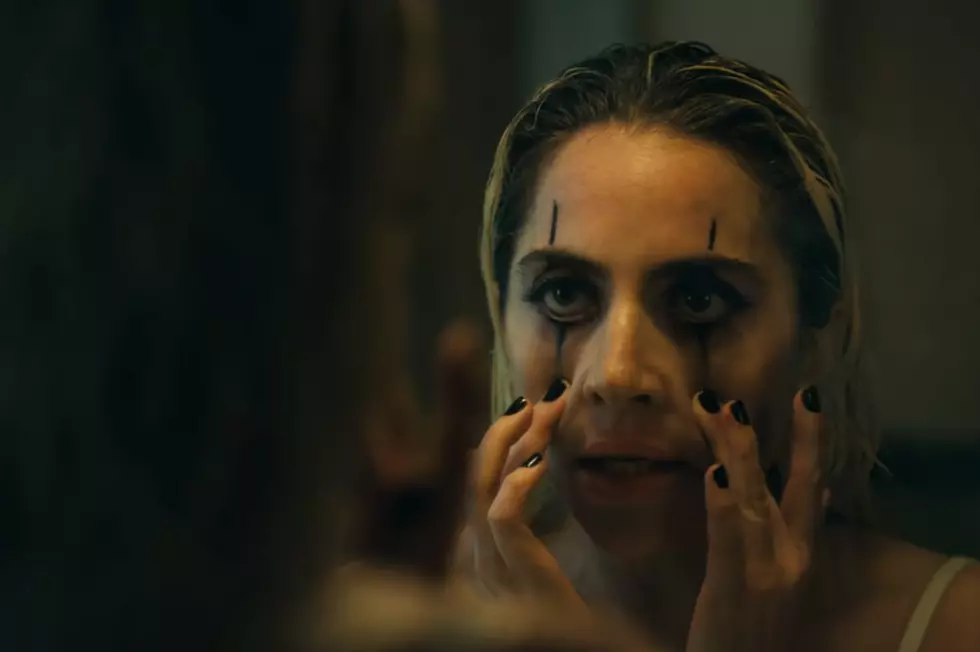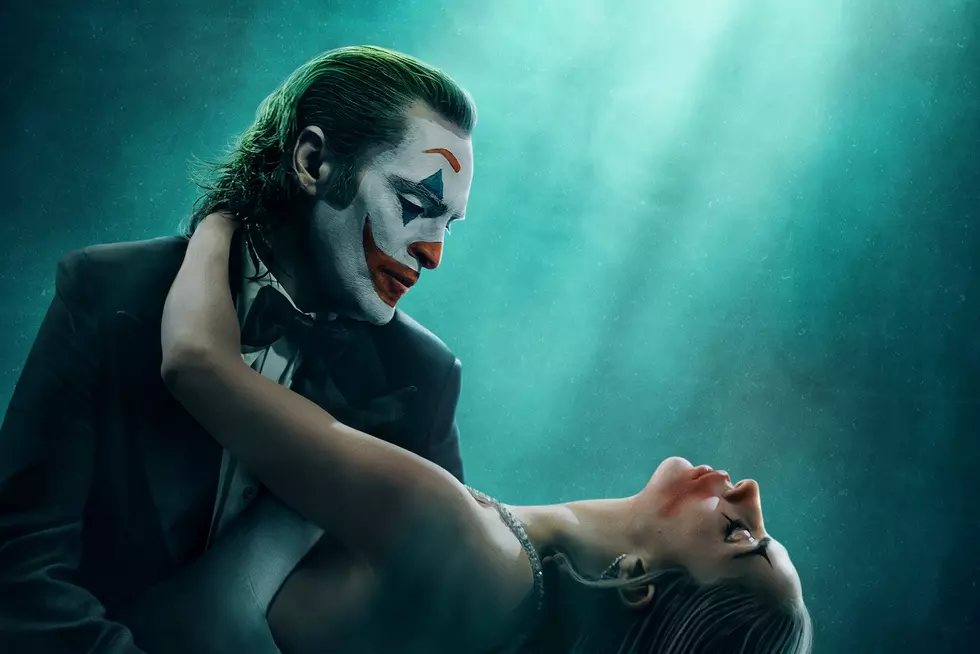
‘Arrow’ Review: “Guilty”
'Arrow' season 3 lets loose its sixth installment of the year with "Guilty,” as Laurel is forced to defend her trainer Ted "Wildcat" Grant (J.R. Ramirez) from accusations of murder, while Roy wrestles with his guilt and recurring nightmares that suggest he was the one to kill Sara Lance.
Last week's installment “The Secret Origin of Felicity Smoak” saw both the arrival of her mother and a deadly computer virus revealing Felicity's past as an MIT graduate hacker, while Oliver clashed with Thea over Malcolm Merlyn, so what does the sixth episode of ‘Arrow’ season 3 bring? Can Oliver be both himself and the 'Arrow' vigilante?
Read on for your in-depth review of everything you need to know about 'Arrow' season 3, episode 6, "Guilty!"
Apart from the initial shock of last week's closing revelation, it seemed pretty unlikely in retrospect that Roy would turn out to be Sara's killer, though the idea was at least worth consideration. Given that the true killer's trail only grows colder, while Ra's al Ghul continually calculates convoluted plans from Nanda Parbat (look for his return sometime in December), it made sense that "Guilty" would make use of some of that downtime to give Roy a bit more spotlight, and use another unexplored character to examine the notions of guilt and vigilantism overall.
Ted Grant hasn't registered much beyond a sort of charismatic mentor (and hopefully not love interest, because ick) for Laurel, so "Guilty" also gave a good deal more insight into the character's history, particularly as the Batman-and-Robin-esque notions of vigilante mentoring reflected the dynamic between Oliver and Roy, as well as the burgeoning partnership with Laurel herself. I've very much enjoyed the turnaround on Laurel's character this year; keeping her closely involved with Team Arrow while still leaving room to rebel and operate outside of Oliver's command. So while I'd hope that the tension between she, Oliver, and Ted doesn't devolve into a simple love triangle ("Mine's bigger," Oliver smirks at Ted over hideouts, because subtlety), the exploration of Ted's history strikes an intriguing note within the context of Oliver's crusade.
'Arrow' has always had a cryptic relationship with morality and law enforcement*, and it rang a bit false to have Oliver throwing a lone murder from Ted's vigilante past around as a reason to doubt his trustworthiness. That's a bear the CW drama might not want to poke in its dissection of vigilantism, considering how Starling City had essentially forgiven Oliver of his past killing sprees, and both Oliver and the show at large seemed almost willing to overlook Roy's “accidental” killing of a police officer last year.
*Certainly not a banner day for the Starling City PD, as Laurel manages to get Ted entirely released from vigilantism, murder, and god-knows-what-other charges, at first without a suspect to replace him, and all without an eyebrow raised over the pair's relationship. Given how marginalized Quentin has been this season, it's a wonder anyone in the department even shows up for work anymore.
"Guilty" works best when it focuses on the complex nature of partnerships and responsibility in student-teacher relationships, and on that end the reluctant rivalry between Oliver and Ted's methods proved a lot of fun. Plus, how can you stay focused on silly things like 17+ hanging corpses when "Guilty" finds a way to sneak in the archer's famous boxing-glove arrow? It's a complicated tone to strike, one "Guilty" admittedly stumbles with here and there, but their fighting at least provided some nerdy fun for fans, amid its functional nature.
As to Roy's purported killing of Sara, his investigation with Felicity and subsequent confession to the rest of the team certainly pulled a record scratch on the momentum built during the Ted story, though it at least speaks to Roy's character that he'd immediately come forward with the news, rather than wait around for explicit proof of his guilt. It also bears noting that Diggle again forced Oliver to confront his moral absolution, making sure to hold Roy to the same standards that they'd held themselves, and even Malcolm Merlyn a few weeks prior.
A bit less effective was Roy's potential guilt tying into the fractured relationship between Ted and his own former protégé Stanzler, and it seemed the true Wildcat killer wasted an awful lot of time attempting to assure Roy of his worthlessness to Oliver, rather than concentrate on the task at hand. And while the sentiment proved a bit on the nose, leading into a rushed assurance that Oliver would never abandon his protégé, it was nice to lend a bit more exploration to the dynamic between the pair, one neatly buttoned at the end as Oliver offered up the spiritual side of his training to help Roy clear up his past. Of course, there’s still a dead police officer to wrestle with, but considering how much of a non-entity Roy has been throughout the first five episodes, we’ll take any development we can get.
Still somewhat straggling this season are the Hong Kong flashbacks. Despite providing a context for Oliver's meditative memory exorcises and giving us a bit more insight into Tatsu Yamashiro (Katana), we haven't seen much beyond the fledgling A.R.G.U.S. operative begrudgingly chasing down thugs through increasingly claustrophobic "Hong Kong" sets. Granted, last year's fast-paced island storyline had a bit more in motion to set up Slade's present-day return and Mirakuru army, but thus far 'Arrow' season 3 hasn’t quite as compellingly established its main arc, and the Hong Kong scenes remain in a something of a holding pattern for it.
Overall, there was enough to enjoy amid the entirety of "Guilty," with some intriguing developments on Ted Grant's dynamic with both Laurel and Oliver, and a renewed bit of focus on Roy's emotional investment in the crusade. Introducing Grant's former protégé and tying their strained relationship to Roy, Oliver, and Laurel's respective arcs took place just a bit too quickly to resonate, but certainly explored some larger questions about the show's sense of vigilante justice, and deepened the multiple mentor-partner dynamics we've seen forming this year.
AND ANOTHER THING...
- I very much liked the subtle background appearances of Amy Gumenick's Cupid, so much so that I wish "Guilty" had left them as such, rather than introduce the character outright in the closing moments.
- Please guys, don't make Ted Grant into a love interest. Their dynamic works as is.
- Yeah, okay. Colton Haynes has high cholesterol, sure.
- I didn't follow all the talk of Mancini and magician's assistants. Was there a Zatanna reference somewhere in there?
- So traditional ballistics don't line up with the arrows that hit Sara, and the DNA results were inconclusive. What do we make of that?
- "Weapon in my arsenal, eh? Well, maybe we should call you 'WEAPON-ROY!' Er... no, the other thing."
- Oliver's Hong Kong target was out of sight for at least a few seconds, and moving fairly quickly. Could no one entertain the idea he'd handed it off to someone else?
Well, what say you? Did 'Arrow' hit the mark with its sixth season 3 installment? How did you feel about the revelations of Roy's guilt? Give us your thoughts in the comments, and check back next week for our review of 'Arrow' season 3's latest, "Draw Back Your Bow" on The CW!
More From ScreenCrush









